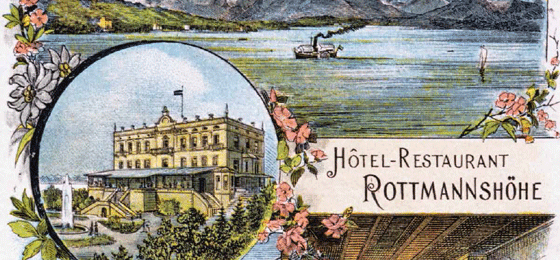Fulfilling the role of responsible scientist

By Thierry Courvoisier
(From "Horizons" no. 105, June 2015)The Swiss Academy of Natural Sciences (SCNAT) is 200 years old. The jubilee year of 2015 is now the occasion to celebrate science across Switzerland (see page 23). It is also an opportunity to underline the role of the Academy in the landscape of Swiss and European scientific institutions.
SCNAT is an association of scientific societies that operate on the cantonal and national levels. It brings together a wide variety of researchers and teachers working in Switzerland. This wide base affords it access to specialists of the highest level in the most varied of fields, not to mention a solid platform in society; it is one-of-a-kind on the global stage.
At its establishment in 1815, the Academy was known as the Swiss Society for Natural Sciences. It was created with a view to uniting the Society of Physics and Natural History of Geneva and the Swiss scientific community, and thereby enriching the latter considerably, at a time when Geneva was acceding to the Swiss Confederation and simultaneously becoming its largest city. This creation came at a difficult juncture, however, as the Napoleonic wars drew to an end and power was restored following the fall of the European ancien régime.
Article 1 of its Statutes read: “The aim of the Society is to encourage knowledge of nature in general and of the nature of our heritage in particular; to spread this knowledge and to apply it in a manner that is of real use to our heritage”. Whilst this formulation may today seem somewhat archaic, its spirit is remarkably close to our understanding of the Academy’s current role. Our main aim is indeed to bring knowledge and a certain understanding of scientific culture to society in general and to the world of politics in particular. Building this bridge is now essential if decisions that affect our environment are to be made on informed and justified grounds.
We are pursuing this goal by compiling knowledge about the topics of today’s agenda (e.g. energy, climate, genetic engineering, biodiversity, etc.) and presenting it in the form of reports and fact sheets that we take to parliament, the federal administration and the public.
Within the scientific community, the Academy plays the role of national coordinator, for example by creating roadmaps for fields receiving large investment sums. It also provides the framework for the representation of different domains at the international level and actively works to build ties between European science and politics.
It is fascinating to observe that the work we carry out is the same as that of the great national academies such as the Royal Society of the United Kingdom or the Leopoldina of Germany, and that the results that we obtain are recognised throughout the world.
Becoming involved in the Academy means fulfilling the role of a responsible scientist in our changing society, and it is an enriching professional experience.
Thierry Courvoisier is President of the Swiss Academy of Sciences and professor of astrophysics at the University of Geneva.